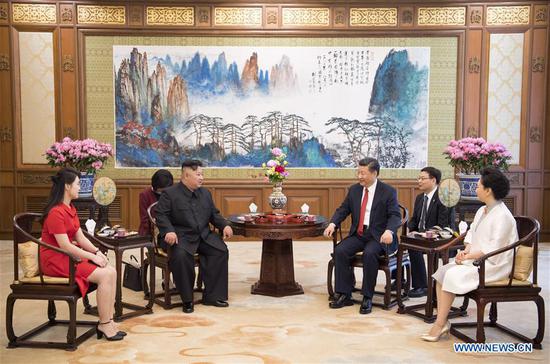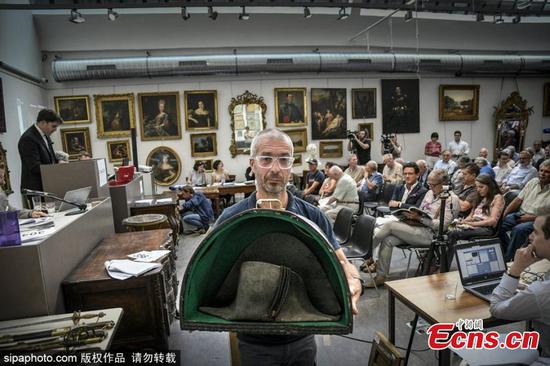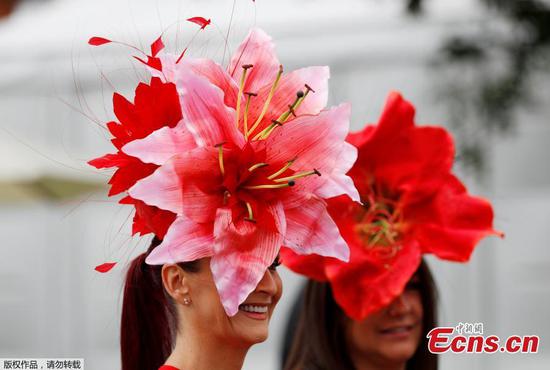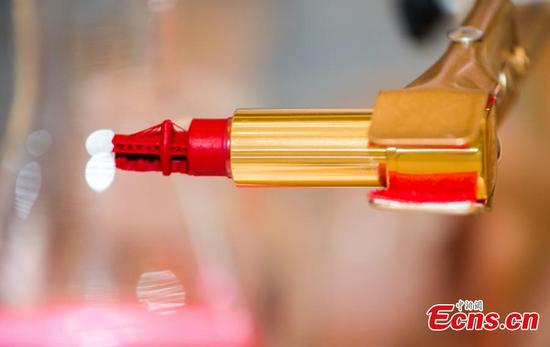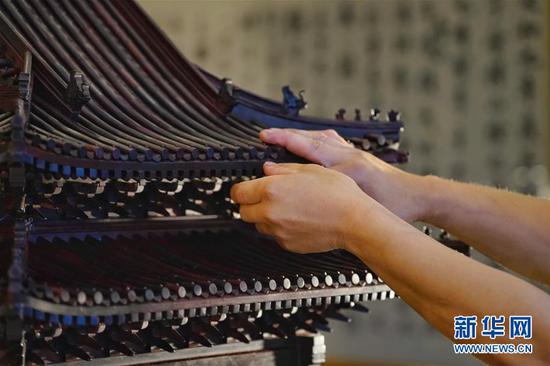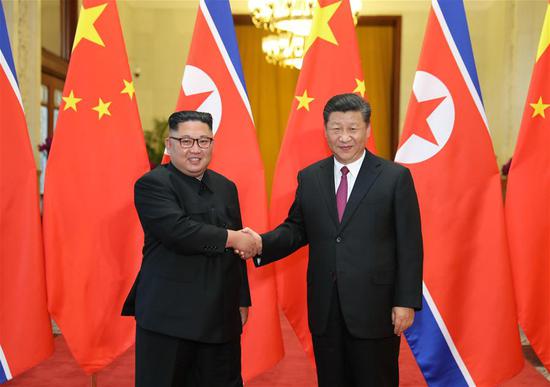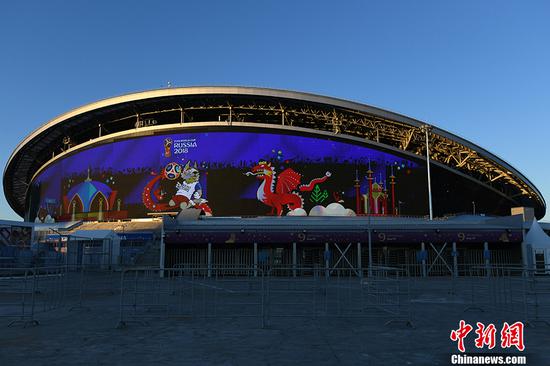uropean Union business in China delivered strong financial results in 2017 and kept regarding China as a top-three destination for present and future investment, according to Business Confidence Survey 2018 jointly launched by EU Chamber of Commerce in China and Roland Berger on Wednesday.
Despite fiercer competition and other challenges such as rising labor and living costs, 66 percent of about 500 survey respondents saw year-on-year revenues improving in 2017, leading by robust sales in medical devices, pharmaceuticals and automotive sectors.
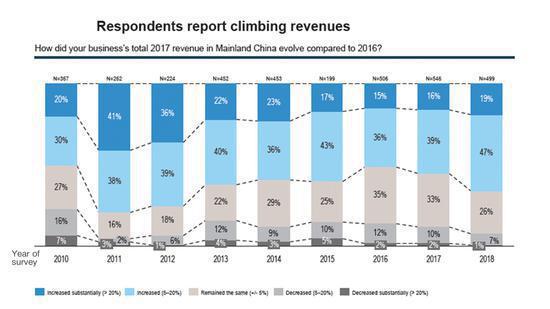
This year marked the highest percentage of companies reporting positive earnings before interest and tax (EBIT) since 2005. Industries such as automotive, transportation, logistics and distribution, chemicals and petroleum did particularly well.
As China turns its focus towards advanced manufacturing, countries like Malaysia, India, Thailand, Indonesia and Vietnam are becoming more attractive destinations for low-cost operations.
However, in general, European businesses remain committed to China, which remains a top-three destination for present and future investment for 59 percent of member companies.
This year’s survey also highlights local companies’ growing competitiveness. For the first time, more than half of respondents said Chinese companies are equally or even more innovative than European firms.Source: Business Confidence Survey 2018
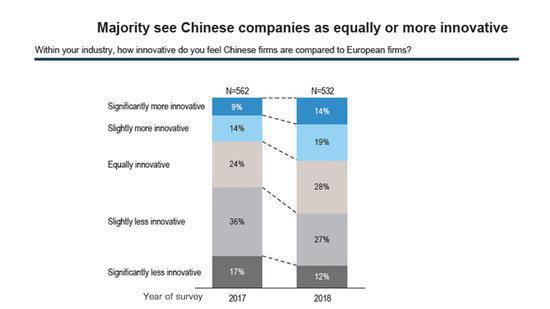
As the domestic environment becomes more innovation driven, overall provisions for research and development (R&D) have also improved. Compared to 2016, European companies are now twice as likely to see China’s R&D environment as more favorable than the worldwide average.
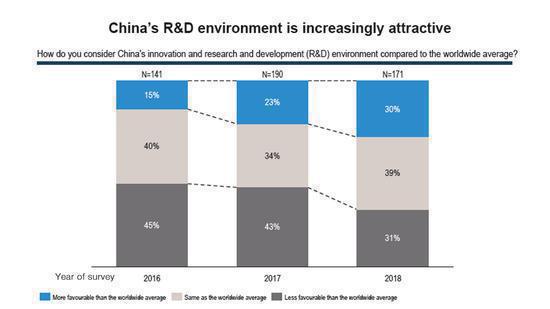 Source: Business Confidence Survey 2018
Source: Business Confidence Survey 2018“An increasing number of European companies are observing a level of innovation in China comparable to Europe or America,” said Roland Berger Head of Asia Denis Depoux, “This can bring disruption to European business, but it is also a sign that time has come to leverage the strength of Chinese R&D, the business ingenuity of Chinese entrepreneurs, either to develop new applications, or to test them on an innovation-thirsty Chinese market.”
While European enterprises welcome these positive developments in China, a large number of them also report persistent regulatory barriers as one of their top concerns and challenges.
“Now that Chinese companies are clearly becoming stronger and more competitive, it is time for China to remove the training wheels in order to create a sustainable economy in the long term,” said European Chamber President Mats Harborn.
The Chinese government underwent a large-scale organization restructuring during the political season this March. Many believe this is now a good window to address many of the country’s regulatory problems.














